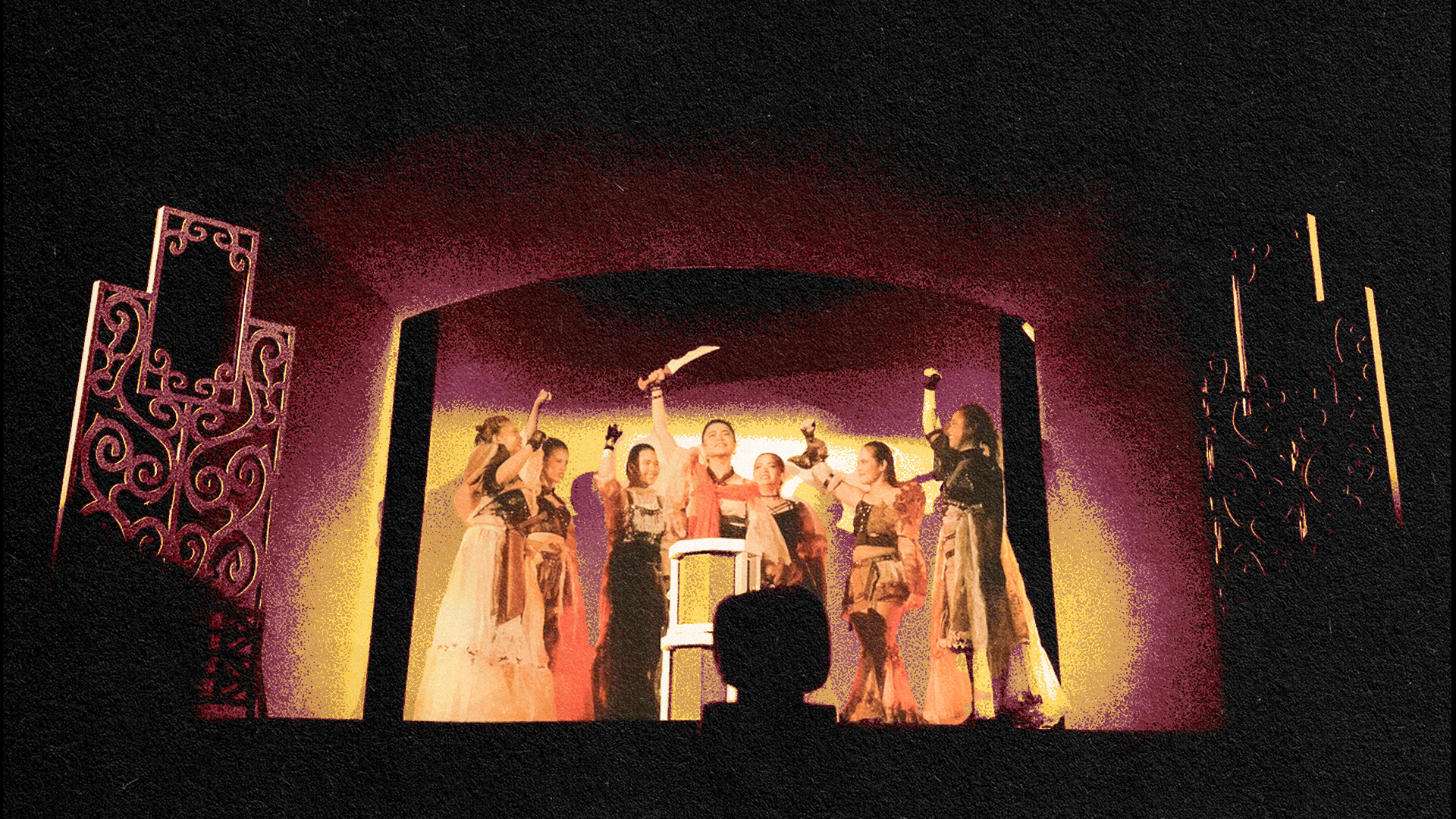The Worth of Words in 'Pingkian: Isang Musikal’
The Worth of Words in 'Pingkian: Isang Musikal’
Pingkian: Isang Musikal cast performing at the CCP Black Box Theater | Photo courtesy of Yan Caringal
A national call for justice, the siren song of a revolution, and a figurehead promised to lead us to victory. It all feels so familiar, like a panging feeling in the back of my head that I’ve seen this all before. That thought shouldn’t be so surprising given that Philippine history is filled to the brim with stories that hit the same narrative beats. With a past like ours, storytellers of the time would be remiss if they didn’t convey reality as it unfolded.
As a child, I found that inspiring. How great are we as a nation to have overcome such suffering? How great are we as a people to have attained so much triumph? It fills you with capital P pride to say the least. Then the cycle repeats: once again, justice is demanded, revolution is necessary, and the common man is given the overwhelming duty to right what’s been wronged. As I’ve grown older, that pride has withered down to fatigue. How did we get here? And why has it happened again?
Watching Pingkian: Isang Musikal brought these feelings to the surface. The musical follows the life and death of Emilio Jacinto, the Brain of the Katipunan, as he undergoes the trials and tribulations of being a high-ranking officer during the Philippine Revolution.
Unfolding like Charles Dickens’ A Christmas Carol, our protagonist enters a dream-like state while on the brink of death, where key figures in his life present him with his past, present, and future. Andres Bonifacio, Jose Rizal, Catalina de Jesus, and more challenge Jacinto to reflect upon himself as a Katipunero, as a Filipino, and as a father.
These complexities were performed with the utmost care by none other than Vic Robinson, whose resonant vibrato stirs your soul as much as Jacinto’s words did the readers of the Kartilya. Every word is sung with a conviction that’s to be expected of a Philippine hero. And as he moved through the story as a man struggling under the weight of being one, I couldn’t help but remember all the common folk across time who found themselves in a similar position: willing to rise to the occasion of being a voice for the people, but grappling with the very human experience of self-doubt and despair. Even in his position, Jacinto still wondered if words were enough. A position that I know many have felt heavily, especially with recent events.
We’ve found ourselves at the beginning of another cycle. And as much as this realization fills me with dismay, Jacinto’s words sneak their way into my psyche with a reminder: “Hangga’t mayroon pang hininga / Hangga’t may ibubuga / Hindi pa tapos ang laban.” As I watch the masses gather in the streets in protest of corruption, I feel myself whisked into the past, in the shoes of the young members of the Katipunan who hung onto Jacinto’s every word. His instructions and inner thoughts were projected onto the walls of the CCP Black Box Theater, on full display for those who were open to receiving his message. The fatigue that’s become all too familiar melted away, and in its place is hope. A hope that I’ve realized that I have to continuously reach out towards lest apathy eats me alive. “Ang tunay na himagsikan / Sa loob nagsisimula,” Jacinto roars during the first act.
Like our protagonist, I’ve wrestled with the futility of words during the darker periods of history. Still, as I’ve traversed this odyssey of glory and impermanence with Emilio Jacinto, I’ve come to appreciate language’s immaterial nature. Sounds that exit our lips and hang in the air, scribbles on paper that are either kept or disposed of—they deeply affect whoever they come across. Pingkian exemplifies this, and its success is apparent with its impact on me.
Catch Pingkian: Isang Musikal at the CCP Black Box Theater until October 12.


















